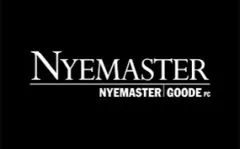This Week
Both the House and Senate held floor debate. On Wednesday, both chambers held a number of subcommittee and committee meetings on policy bills from the opposite chamber prior to the second funnel deadline next Friday. The Senate included Senate File 2386, legislation making changes to Iowa's AEA's, on the debate calendar for Tuesday, but did not bring the bill up for consideration before adjourning. A strike-after amendment was filed Tuesday, and the Senate is expected to bring the bill up in the coming weeks after reviewing the amendment with stakeholders.
Major Economic Growth Attraction Program
On Wednesday, the House considered Senate File 574, a bill creating a new program within the Iowa Economic Development Authority. The Major Economic Growth Attraction Program will be used to help provide additional incentives to land large development projects for certified sites. The bill limits the program to two projects initially and requires the following criteria be met:
- More than $1 billion in capital investment
- Advanced manufacturing, biosciences, or research business
- Created jobs must pay at least 140% of the labor shed wage at the time the project is completed
- Must offer qualified benefits plan
- Located at a certified site
The legislation previously passed the Senate in 2023 with a 45-2 vote. The House adopted an amendment adding further restrictions to ensure foreign adversaries who operate a business owning agriculture land in Iowa are not eligible for the program and included language from House Study Bill 715, allocating $300,000 to be used to assist with costs associated with certifying sites. The appropriation must be used in counties with a population of less than 50,000 and to certify at least two sites in each congressional district. The Senate must conform to the amendment before it can be signed into law by the Governor.
Constitutional Amendment
Both the House and Senate considered a constitutional amendment proposal this week that would require a 2/3 majority vote in both chambers of the legislature to raise future individual income taxes and would establish an individual flat tax rate in Iowa's constitution. Senate Joint Resolution 2003 passed the Ways and Means Committee on Wednesday with a party line vote. Democrats on the committee opposed the proposal arguing it would negatively impact future legislators who may need to raise income taxes for unforeseen circumstances. Proponents of the bill responded sharing recent polls that found the majority of Iowan's support the idea and urged passage of the resolution to allow voters to decide. The House moved a similar joint resolution as House Study Bill 721 out of a Ways and Means Subcommittee on Wednesday and is expected to be considered by the full committee next week.
The amendment is part of the plan proposed by the Senate to further reduce Iowa's individual income taxes. Under the law passed in 2022, Iowa's individual rates are currently being gradually reduced to a flat tax rate of 3.9% and corporate income taxes are being reduced to 5.9%. Senate Republicans introduced a plan in January to further reduce income taxes to a flat 3.65%. The legislation would reallocate funds from the Taxpayer Relief Fund to a newly formed trust managed by IPERS, with interest earned from the trust used to buy down future tax rates until the individual income tax is eliminated in Iowa.
The proposed constitutional amendment must pass the legislature this year, and again next year, before it is placed on the ballot in November of 2025. A majority of voters must approve the proposal the general election for the amendment to be adopted to Iowa's Constitution.
Immigration Reform
Both the House and Senate considered legislation allowing the state to address immigration concerns, following the push in Congress to reach a deal on illegal border crossings that failed to pass last month.
Senate File 2340 creates a new Code chapter related to illegal reentry into the state by immigrants who commit a Class D felony or a Class C felony, who was previously removed after conviction. The bill passed the Senate on a party-line vote of 34-16 and was messaged to the House where a companion file is on the debate calendar.
House lawmakers considered House File 2608 on Thursday. The bill creates a new code section expanding the verification process for public assistance programs requiring any noncitizen to be both a resident of Iowa and legally in the state to be eligible for public assistance. The bill also provides that an individual commits a Class C felony when knowingly smuggling a noncitizen individual. All Democrats opposed the legislation while Republicans supported the bill with a 60-32 vote.
Other Bills of Interest
Teacher Pay (HF 2630): Raises starting teacher minimum pay to $47,500 in FY24 and $50,000 in FY25 with a bipartisan 93-1 vote. The Senate included a teacher pay provision in the proposed AEA Reform bill that would increase the minimum starting salary to $46,250.
Public Notice (SF 2331): Requires a newspaper with an internet site to provide all public notices online or provide a link to the statewide public notice site, allows for a governmental body to satisfy public notice requirements by posting the notice on the official website and forwarding the notice to each required county if no official newspaper exists in the county, and requires all public notices be posted within 72 hours with some exceptions. The bill passed the Senate 37-9 and passed the House State Government Committee this week. There is agreement on a few additional amendments to the bill that will be done on the House floor.
Fentanyl Related Deaths (HF 2576): Charges anyone unlawfully delivering, dispensing, or otherwise providing fentanyl resulting in death with first-degree murder. The bill passed the House with a bipartisan 86-12 vote on Tuesday and advanced out of subcommittee in the Senate on Thursday.
Next week: Legislation must pass through committee in the opposite chamber it originated in to survive the second funnel deadline. Bills in either the Ways and Means or Appropriations Committees are exempt from this deadline.
The content of this article is intended to provide a general guide to the subject matter. Specialist advice should be sought about your specific circumstances.



